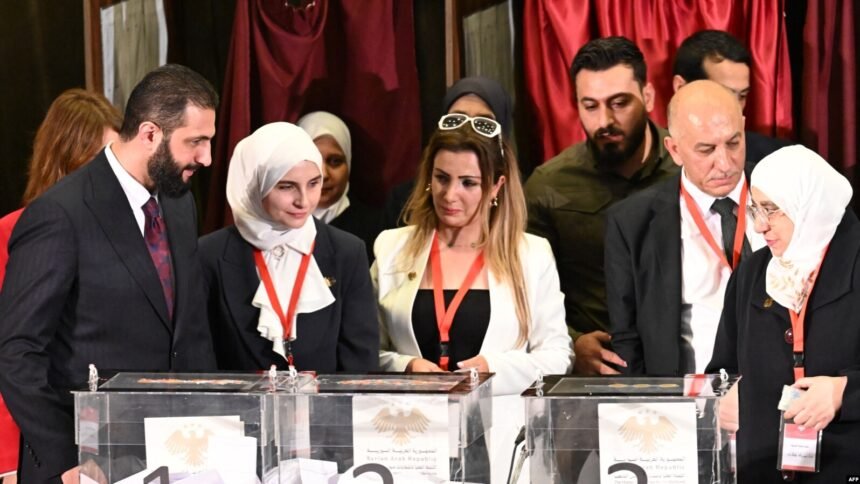Syria has announced the preliminary results of its indirect parliamentary elections, the first since the ousting of Bashar al-Assad last year. On October 6, election officials admitted that women and religious minorities achieved a low level of success in securing seats.
During Sunday’s vote, around 6,000 members of regional electoral colleges selected candidates from pre-approved lists to form nearly two-thirds of the new 210-seat Parliament. The remaining one-third of members will later be appointed by interim President Ahmed al-Sharaa.
Al-Sharaa has served as interim president of Syria since Assad’s fall.
In the days leading up to the vote, analysts and citizens expressed concerns over the highly centralized process and the suspension of elections in areas outside government control, warning that many communities would not be fairly represented.
According to the preliminary results released Monday, the Syrian Electoral Committee announced that 119 lawmakers were elected but did not specify how many votes each received. Only six of the new legislators are women, according to a count by Reuters, confirmed by election observers. A total of ten seats went to religious and ethnic minorities, including Kurds, Christians, and two Alawites — the sect once led by Assad.
One election observer described the new Syrian Parliament as being “largely composed of Sunni Muslim men.”
Asked about representation of women and Christians, Nawar Najma, spokesperson for the Syrian High Electoral Committee, admitted:
“Among the main shortcomings of the election process were the unsatisfactory results regarding the representation of Syrian women, as well as the fact that Christians were represented by only two seats — a weak proportion compared to their population in Syria.”
Najma added that President al-Sharaa is expected to address these shortcomings when appointing the remaining 70 legislators.
Authorities defended the indirect voting system, saying it replaced direct elections due to a lack of reliable population data after the civil war, which killed hundreds of thousands and displaced millions.
For security and political reasons, voting was postponed in regions outside government control, including Kurdish-held areas in the north and northeast, and in Suweida province, dominated by the Druze minority. As a result, 21 parliamentary seats remain vacant.
Interim President Ahmed al-Sharaa has already ratified a decree establishing a temporary electoral system. Najma noted that elections in Kurdish regions depend on progress in negotiations aimed at integrating these areas into the state apparatus.
During Assad’s rule, Syria’s Parliament had 250 seats, with two-thirds reserved for Baath Party members. The last election in July 2024 was widely denounced as a farce by Assad’s opponents.
Women’s representation has long been weak in Syrian legislatures under both Bashar al-Assad and his father, Hafez al-Assad, ranging between 6% and 13% since 1981, according to the Inter-Parliamentary Union, which tracks data on national parliaments worldwide.







